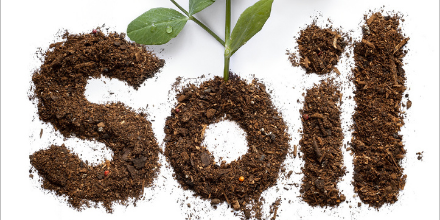Annie Smithers is one of Australia’s most highly regarded chefs and a pioneer of the paddock-to-plate ethos. Her restaurant, du Fermier, features a menu du jour based on classic French farmhouse cooking, using the vegetables harvested that day from her kitchen garden, and local meats and poultry. Annie has published two cookbooks and is a regular contributor to The Saturday Paper and Radio National.
Today, Annie Smithers is on the blog to answer some of our questions about her new book, Recipe for a Kinder Life! Read on …
Please tell us about your book, Recipe for a Kinder Life!
AS: The book is about how I try and live a more sustainable life and walk a little more gently on the earth. Across the pages it discusses the growing and cooking food. It also touches on a number of other important issues. Discussing weather and water. The history of the land that we live on, reminding us that we are mere custodians for a brief minute in time. Building practices and a sense that skills are being lost. And well being, how I try to not be pervaded by the modern world every minute of every day.
What does living a kinder life mean to you?
AS: I suppose it all comes back to a sense of self. One of the basic tenants of the book is that if you are living a personal life that is not sustainable, it can then be very difficult to go forth and practice sustainable actions. So firstly be kind to yourself, take the time to work out what you need in life. Often it is less than you think. By decreasing the wants, you can expose the needs and start to release a little personal pressure.
You’ve had over thirty years of experience in living the paddock-to-plate ethos. What’s one thing you know now that you wish you knew back when you were first starting out?
AS: I wish that I had had the maturity that age brings to realise that good things do come to those that wait and that gardening and growing food takes time, practice and patience. Then I might have been a little kinder on myself.
You do all of the cooking for your restaurant Du Fermier. What do you love about connecting with people through food?
AS: Having a tiny country restaurant is a great honour. I believe that when our guests come in the door that our central responsibility is to make them feel loved and nurtured for the time that they grace our tables. What better way is there to nourish people than with good food, grown and sourced carefully?
‘If you are living a personal life that is not sustainable, it can then be very difficult to go forth and practice sustainable actions. So firstly be kind to yourself, take the time to work out what you need in life.’
You live and work in rural Victoria. How has living here influenced your approach to sustainable living?
AS: There’s nothing like living away from shops and metropolises to limit shopping. In doing this there is a much greater discipline on having a stocked pantry. Combined with a vegetable garden out the back, our consumerism comes down a notch or two. Being busy on the property with plants and animals also means that we shape our days a little differently, prioritising them and then social needs second. Sometimes this can be a real bore, but …. The net effect is that we enjoy our time on the property so much, we are loathe to leave, which quietly encourages us to do more with less, leading to less wastage and more sustainable practices.
In your opinion, what is the biggest obstacle for most people to living a more sustainable life?
AS: Many people seem to be hooked into a life that is hurtling along 24/7. The rise of the smart phone, the 24 hour news cycle are massive obstacles for people. We seem to be finding it harder and harder to switch off, especially from work. It seems that many people in this Covid era, whilst acknowledging it is hard in many respects, have enjoyed the capacity to slow down, both at work and at leisure. The rise of ‘fast fashion’ has also been a great curse. It is just so easy to buy things that are made for a minute these days, whether it be fashion or technology, stuff to just throw away, as it can’t be fixed or repaired if it’s broken. But our busy-ness seems to be the greatest obstacle, we are too busy to spend time preparing a meal, too busy to mend a pair of trousers, and on it goes. We actually don’t need all that stuff, we just need to make a little more quiet time.
What is the last book you read and loved?
AS: Still Life by my friend Sarah Winman. She took me straight back to Florence with a delightful story spanning decades.
What do you hope readers will discover in Recipe for a Kinder Life?
AS: I hope that it appeals to all manner of readers. Some that just love a good story, others looking for food growing inspiration, others cooking tips and recipes. Mostly I hope that readers discover that letting go of wanting to be everything for everybody, before looking after themselves, is a much kinder and nicer way to live.
And finally, what’s up next for you?
AS: For me it’s the new cycle of life in late winter. Sowing seeds madly for the plants to come, incubating eggs for the next generation of poultry. Hoping that we can keep the restaurant open through these difficult times. And writing, mulling over what I’d like to write next, having enjoyed this so much.
Thanks Annie!
—Recipe for a Kinder Life by Annie Smithers (Thames & Hudson Australia) is out now.

Recipe for a Kinder Life
In this generous account of life on the land and in the kitchen, trailblazing cook Annie Smithers chronicles her quest for a more sustainable existence, in harmony with the environment and the self. Part meditation, part memoir, the book offers practical advice and wisdom gleaned from a life dedicated to seasonal food and living lightly on the ground beneath her feet.
Annie's story spans thirty years of productive gardens and kitchens across country Victoria...







 Read an extract from Country: Future Fire, Future Farming
Read an extract from Country: Future Fire, Future Farming  Ten Terrifying Questions with Gabrielle Chan!
Ten Terrifying Questions with Gabrielle Chan!  REVIEW: Soil by Matthew Evans
REVIEW: Soil by Matthew Evans
Comments
October 20, 2021 at 4:25 pm
Disappointing that she talks about living sustainably and treading on the earth with a lighter footprint but she’s not vegan.